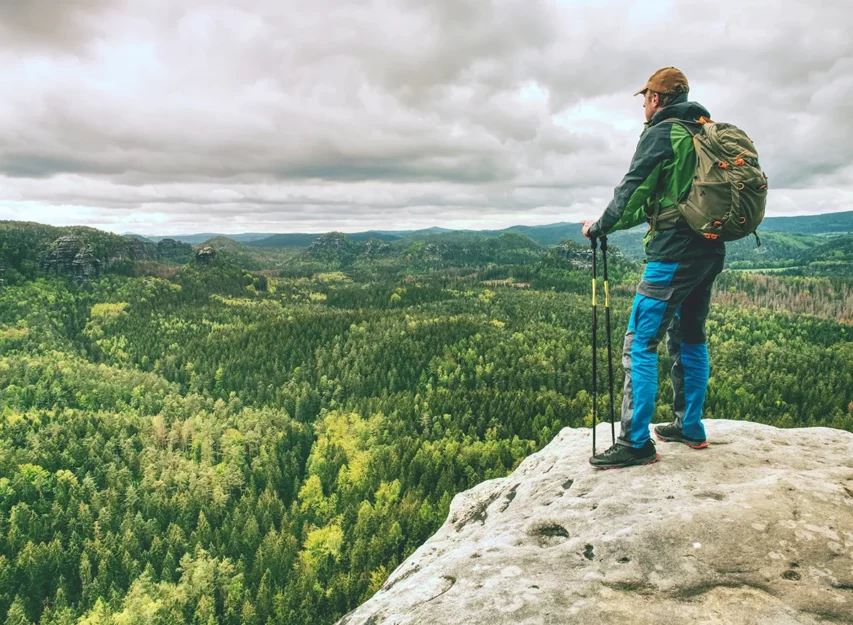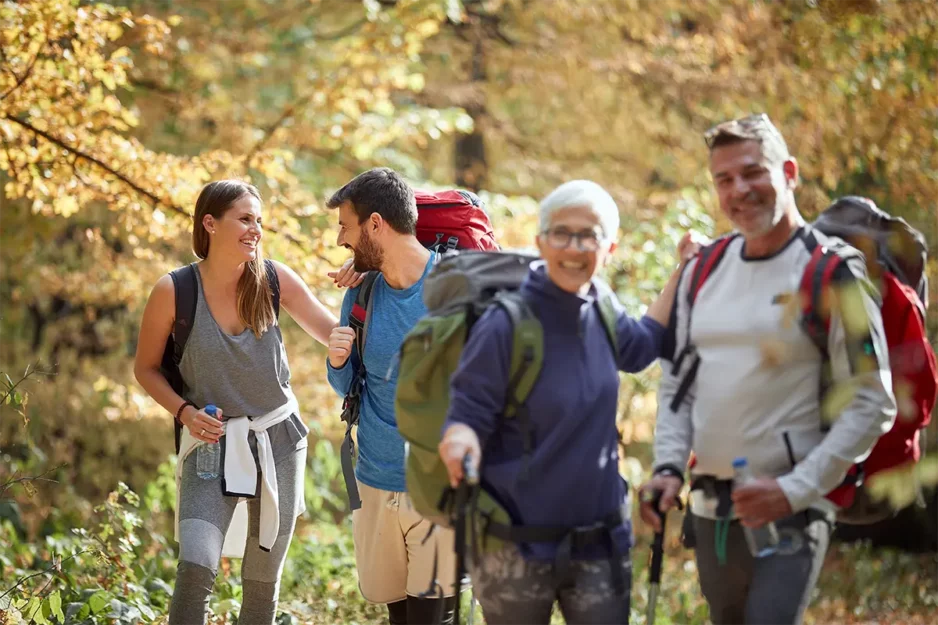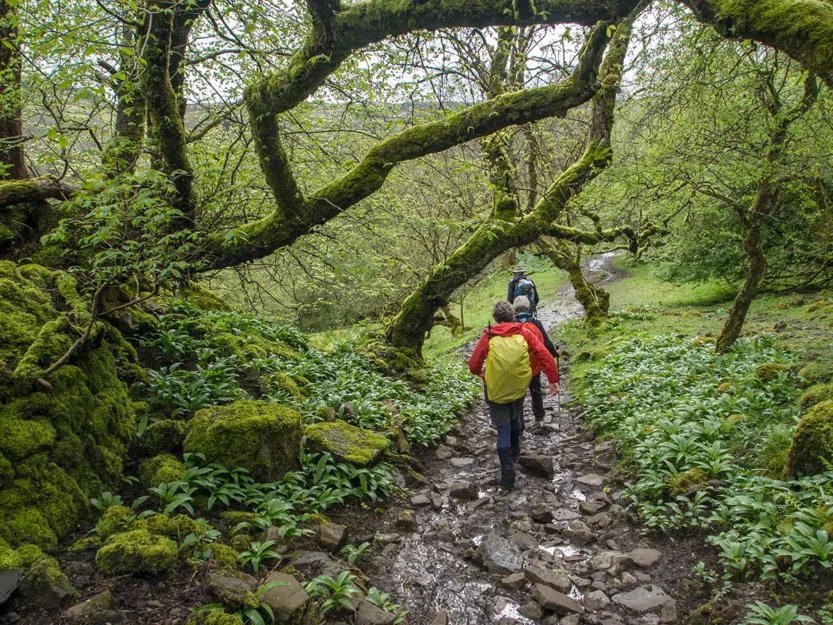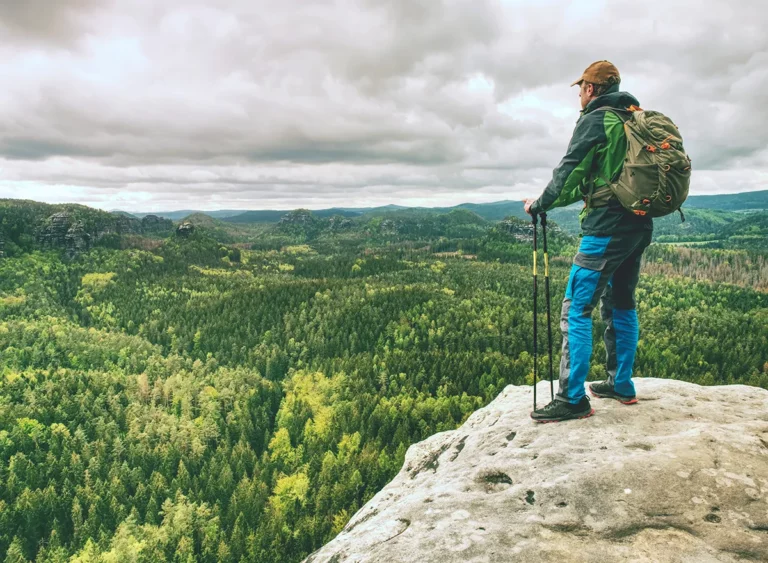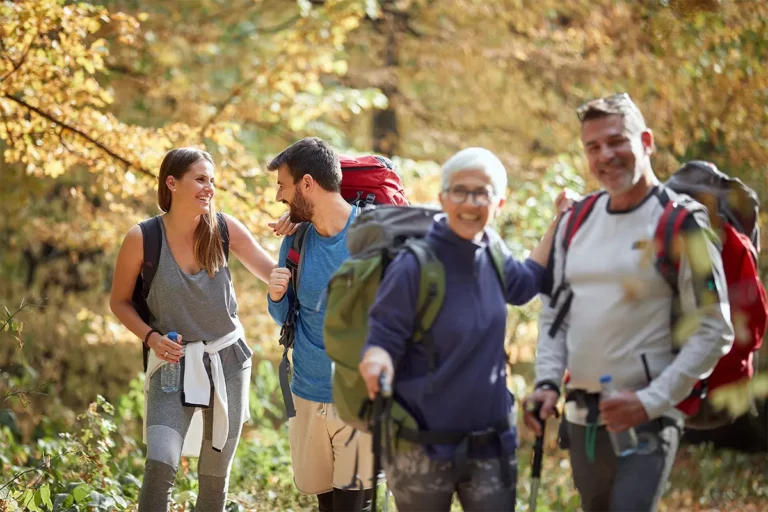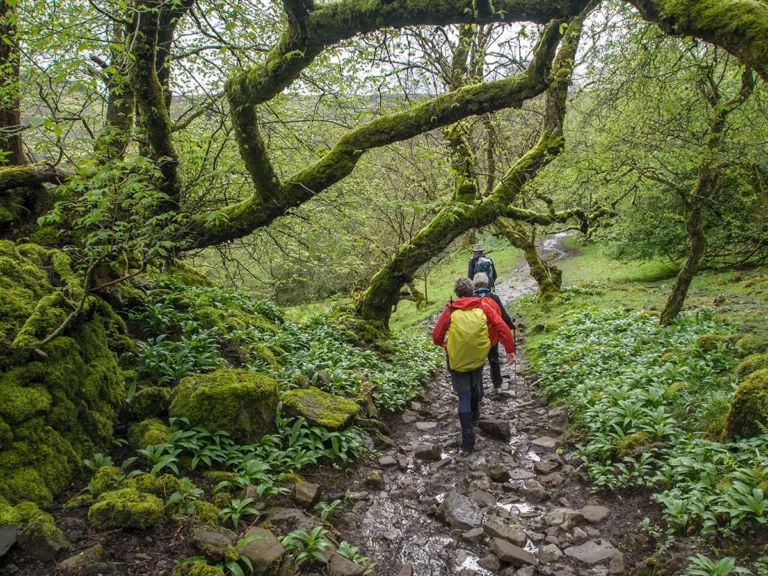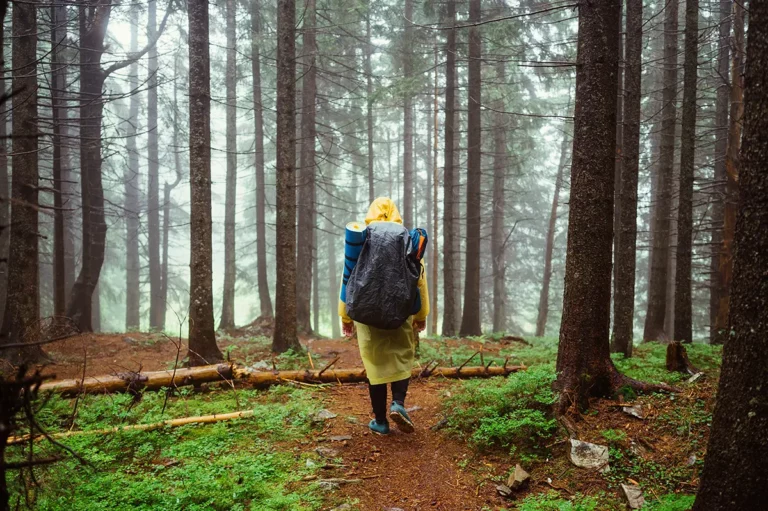Can you keep a secret? I thought my passion for the great outdoors was gone for nearly a decade. I avoided hikes, and when I did hike, I mostly complained I don’t like hiking.
As a kid growing up on the outskirts of Los Angeles, we hiked and explored the Verdugo Mountains and the waterfall in the Angeles National Forest. After moving to Las Vegas, climbing Red Rock as a teenager was just making dangerous decisions for the thrill. The truth is, seeing the same dirt, rocks, and bushes I see out of my window got old.
So, what happened to cause me to love hiking again? An extra 30-minute drive to Mount Charleston, a nearly 12,000-foot tree-lined mountain on the outskirts of Las Vegas.
Finding your happy place, the type of nature, terrain, and view you enjoy is the first step to enjoying hiking.
The next step is to stop trying to turn ‘I don’t like hiking’ into ‘I love hiking.’ Instead, concentrate on achieving: I really enjoyed THAT hike.
Turning I don’t like hiking into I enjoyed THAT hike
Hiking is a hobby, like building model cars, playing video games, or traveling. The list of hobbies available is endless because they aren’t for everyone. And, hiking as a hobby might not be for you.
Just because you’ll never be an avid hiking lover doesn’t mean you can’t enjoy the aspects of a beautiful hike in nature.
To enjoy hiking more, consider the type of nature that appeals to you. Do you enjoy:
- Waterfalls
- Wildflowers
- Wildlife
- Rivers and creeks
- Lakes
- Dense forest
- Moss
- Something?
Hiking is a long walk in a beautiful setting. Place yourself in scenery you think is gorgeous, and walking around it is much more enjoyable.
How hiking positively impacts mental health
Hiking is a breath of fresh air and peace away from the city. Being around nature has many positive impacts on your mind and mental health.
Benefits of spending time in nature include:
Cognitive benefits
Nature and green spaces calm our busy minds. Exposure to nature has been found in experiments to improve memory, cognitive flexibility, and attentional control.
Increased psychological well-being
95% of those interviewed for a study by Mind.org had a positive change in depression, stress, and anxiety levels after being in nature.
Even scenes of nature can make a positive impact on mood. Plants and trees are placed in hospital rooms to provide meaningfulness and vitality.
Connection to nature
When socially isolated near nature, studies have found high levels of well-being — a strong argument for humans’ connection to nature. The opposite was shown during the pandemic lockdowns for many self-isolating in their homes.

Why do people like hiking?
Everyone has their reasons to enjoy a hike. Many like to be close to nature and listen to the birds and wind rustling the leaves — a chance to unplug from everyday life and appreciate the simple joys.
For many, hiking is the perfect exercise to burn calories and improve cardiovascular health. Since everyone should exercise regularly, why not do it in nature? And it can be as strenuous as you choose it to be.
A gentle walk along an easy trail has the same benefits as walking around your neighborhood, with better views.
Traversing large mountain ranges and steep switchbacks provide cardiovascular strength and leg conditioning without being stuck in a gym.
Help! I don’t like outdoor activities
Perhaps, you don’t like outdoor activities YET. All hikes are different, and each trail has its unique characteristics.
Typically, people who don’t like outdoor activities aren’t a fan of an aspect of it, not the entirety of nature itself.
Here are the most common complaints about outdoor activities and ways to overcome your struggles:
I don’t like bugs
You’re not alone on this one. Most people dislike bugs but can persevere due to their love of the activity.
To do your best to avoid bugs when hiking, consider these tips:
- Hike in the winter
- Hike in the early morning and early afternoon
- Use bug spray
- Avoid hiking near stagnant bodies of water (swamps, ponds)
- Go on traveling hikes to low insect states
- Stay on the trail
- Wear light-colored clothing to repel mosquitos
- Hike in elevated, windy locations
Outdoor activities are exhausting
Outdoor activities are typically physically demanding. And a low fitness level makes for a miserable hiking experience.
You have two options to overcome this challenge, training and exercise or choosing an easy hike. It’s best to pair the two together and allow your hikes to become training — increasing distance and difficulty over time.
There are workouts to focus on your core and leg strength to get physically fit for hiking. The best exercises for hiking beginners are:
- Walking, jogging, and running
- Squats
- Lunges
- Rowing
- Core exercises
I don’t like sweating
Few people do, and it’s unlikely you’ll be able to avoid sweating on hikes. But, it’s possible to minimize sweating under the right conditions and by taking appropriate precautions.
Hiking in the cold, before the sun is at its peak, is the best way to avoid sweating. Wearing breathable outdoor clothing and staying hydrated are also helpful.
The shade from tall trees has a significant impact on heat. Try choosing trails in the forest to avoid direct sunlight. A light breeze or a nearby body of water will also keep the heat down.
Finding your hiking purpose
To enjoy a hike, you need to find your purpose. If fitness isn’t it, what do you like in nature?
For me, I would hike 10x longer to see a waterfall than a summit top view.
In today’s age, it doesn’t happen if it’s not on social media. Hiking is an excellent opportunity to take beautiful photos and share them with your followers.
If social media, nature, or fitness aren’t relevant for you, but you’re still motivated to find your purpose, create a challenge or an event.
Ideas for a challenge or fun event when hiking are:
- A picnic at the top of a summit
- Who can spot a particular animal first
- Compete for the most artistic photo
- Hike to a secluded swimming spot or hot spring
- Learn about the geology of the area to better understand nature
- Play twenty questions with your partner or date
Final thoughts
The fact you’re researching how to appreciate hiking is commendable. Nature is an amazing wonder, and our planet has so much to explore and learn.
How can you start to enjoy hiking? To go from I don’t like hiking to I enjoyed that hike, its helpful to:
- Find a hike with the type of nature you enjoy
- Try to appreciate the peace and calmness on a mild, easy hike
- Wear breathable clothing to avoid over-sweating
- Improve your cardio and leg strength
- Hike in the morning to avoid bugs
- Find your purpose for the hike with a challenge or event
In the end, you may find hiking will never be a hobby you enjoy. Your friends or partner should appreciate your trying by giving it an effort.
There are many ways to enjoy nature together without hiking, like bike riding, kayaking, boating, cabins, camping, glamping, or a simple picnic in the park.
Don’t give up on nature yet. Nature is incredible, and the benefits of spending time in it will pay off through better physical and mental health.
Did you find your next hikes purpose? Share this article and your advice to help others who don’t like hiking.


